CIA Sponsored Terror, Civil Liberties, Human Rights, Political Prisoner, Prison Industry, Surveillance, Torture
Podcast: Play in new window | Download
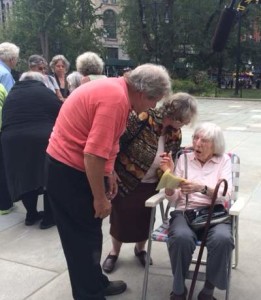
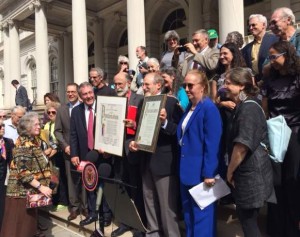
New York City Councilors Issue Proclamation Honoring Ethel Rosenberg on her 100th Birthday
The Rosenberg atomic spy case of 1951 was one of the most famous political trials in American history. Both Julius and Ethel Rosenberg were from New York and had been active in the American Communist Party. When they were arrested in 1950 it was at the height of the hysteria during the infamous red hunting McCarthy decade. In 1950 the Russians first tested their atomic bomb and United States initiated the Korean War to roll back the revolution there. The effects the cold war and the execution of the Rosenbergs was devastating to the Left. Ethel and Julius were electrocuted to death at Sing Sing prison two years later. At the sentencing, federal judge Irving Kaufman said that the Rosenbergs were guilty of facilitating the death of some 50,000 American soldiers in the Korean War and President Eisenhower. Declining to grant clemency, he said they might be responsible for the death of tens of millions of people in an atomic war. The government tried to get Julius Rosenberg to confess and give names. A representative from the Attorney General’s office visited him at Sing Sing prison. Rosenberg said no. He said “We are the victims of a most monstrous frame up.”
Subsequent scholarship has shown that Ethel Rosenberg was totally innocent and that Julius Rosenberg was not an atomic bomb spy and that there was no secret to the atomic bomb, it was a question of industrial technique.
Now, 62 years, later Ethel Rosenberg was honored by the New York city Council on the steps of City Hall September 28 with a proclamation of her innocence. It would have been her one hundredth birthday. We hear audio excerpts from the press conference and from Michael Smith and Heidi Boghosian speaking with Robbie Meeropol, Meriam Moscowitz and Attorney Danny Myers.
—-
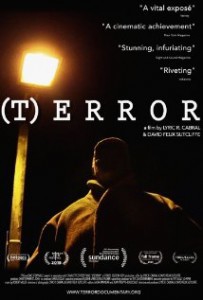
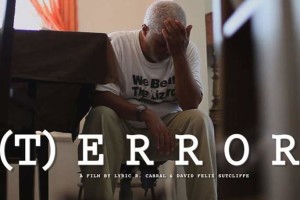
(T)ERROR
In a twist on the confidential informant genre, the new film (T)ERROR chronicles a Bureau investigation without the FBI knowing it’s being watched. Filmmakers David Felix Sutcliffe and Lyric Cabral follow ex-con Saeed “Shariff” Torres, who claims to have made hundreds of thousands of dollars a year befriending Muslim targets accused of pro-terrorism inclinations. Shariff alienated a Brooklyn community of Muslim friends by helping convict jazz bassist Tarik Shah just for talking about training members of Al Qaeda. In 2005 Shariff revealed to filmmaker Cabral that he was an FBI informant. He later agreed to let her and Sutcliffe film details of his work without the FBI’s knowledge. The movie shows how Shariff was directed to befriend Khalifah Al-Akili, a white Muslim convert who has publicly made pro-terrorist statements. After Shariff and the FBI trying to get Khalifah to shift from words to deeds, he goes public with suspicions that the FBI has targeted him.
Guest – David Felix Sutcliffe, is a Sundance award winning documentary filmmaker. In 2013, he was included in Filmmaker Magazine’s annual list of “25 New Faces of Independent Film.” His first film, ADAMA (PBS, 2011), is an hour-long documentary that explores the story of a 16-year-old Muslim girl growing up in Harlem who was arrested by the FBI on suspicion of being a “potential suicide bomber.” (T)ERROR, co-directed with acclaimed photojournalist Lyric R. Cabral, is his feature-length documentary debut, and marks the first time that filmmakers have had access to an active FBI informant in a domestic counterterrorism investigation. (T)ERROR premiered at the 2015 Sundance Film Festival where it won a Special Jury Prize for Break Out First Feature.
———————————
Civil Liberties, FBI Intrusion, Habeas Corpus, Human Rights, Political Prisoner, Prison Industry, Surveillance, Targeting Muslims, Truth to Power, War Resister
Podcast: Play in new window | Download
Updates:
- Hosts Remember People’s Lawyer Liz Fink
—-

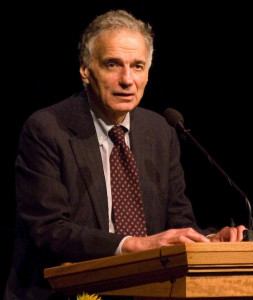
The American Museum of Tort Law
After trial lawyers told him they had no place to display exhibits they had used in court, Ralph Nadar realized that there isn’t a single museum devoted to the law in the United States. That’s about to change. The consumer advocate is opening the American Museum of Tort Law in his hometown of Winsted, Connecticut to celebrate victories of the law over corporate power. The museum will span the history of tort law – civil law that seeks relief for people injured by wrongful acts of others – and host exhibits on significant cases such as the 1998 national settlement with tobacco companies. Nader said it may also host artifacts including a Chevrolet Corvair – the car featured in his 1965 book “Unsafe at Any Speed,” which made him a household name.
Guest – Ralph Nader, attorney, political activist, consumer advocate, presidential candidate and author who among many accomplishments is responsible for 8 major federal consumer protection laws and helped established the PIRGS – Public Interest Research Groups.
—-
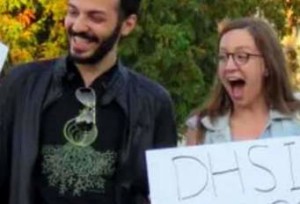
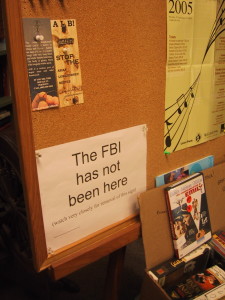
The Library Freedom Project Protects Library From DHS Surveillance
With a population just above13,000 people, the quaint town of Lebanon, New Hampshire is nestled not far from the Connecticut river in the northwest corner of the state – a few miles from Dartmouth College. In July, the local library set up a system to protect the privacy of patrons using its computers by installing Tor, the platform that routes users’ Internet traffic through various relay points, making warrantless surveillance of browsing habits and traffic more difficult. The Kilton Library’s Tor relay node attracted the attention of the Department of Homeland Security, which contacted local officials and law enforcement, warning that Tor could aid criminal behavior. In response, the library intially took down the relay, but later changed its mind and reinstalled it.
Guest – Alison Macrina is a librarian, privacy rights activist, and the founder and director of the Library Freedom Project, an initiative which aims to make real the promise of intellectual freedom in libraries by teaching librarians and their local communities about surveillance threats, privacy rights and law, and privacy-protecting technology tools to help safeguard digital freedoms.
——————————————-
Civil Liberties, Criminalizing Dissent, Human Rights, Political Prisoner, Prison Industry, Surveillance
Podcast: Play in new window | Download
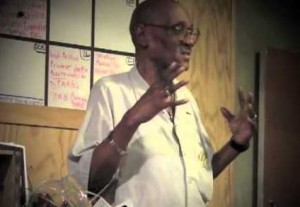
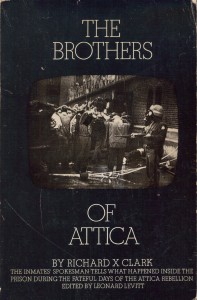
Remembering Richard X Clark
Civil rights activist and author Richard X. Clark was born on July 29, 1946 in New York City. He was raised in foster homes in the New York neighborhoods of Jamaica, Queens, and the Bronx. Clark graduated from DeWitt Clinton High School and enlisted in the United States Navy, where he served until 1968. In 1969, Clark was arrested on charges of attempted robbery and was sentenced to four years in prison. From 1969 to 1972, he served time at multiple state prisons including Sing Sing Correctional Facility, Elmira Correctional Facility, Auburn Correctional Facility, Wallkill Correctional Facility, and the Attica Correctional Facility in Attica, New York. Appalled by prison conditions at Attica, Clark became a Muslim minister and became active in black Muslim political groups. In September of 1971, he was one of the leaders of the Attica Prison riot, which took the lives of forty-three men. During the riot, Clark was head of the inmates’ internal security and served as a liaison between the inmates of D-yard and the authorities.
After his release in 1972, Clark moved to Greensboro, North Carolina and authored the book, The Brothers of Attica, which was published in 1973. Twenty years later, Clark relocated to New York City and became a case manager for Phase Piggy Bank, a Harlem-based organization that provides drug and alcohol rehabilitation.
Guest – Attorney Daniel Alterman has been practicing law for over forty years. He was admitted to the New York Bar in 1969, the U.S. Supreme Court, the U.S. Court of Appeals for the Second Circuit, the U.S. District Courts of the Southern and Eastern Districts of New York. Since 1971, Mr. Alterman has been a member of the Board of Cooperative Attorneys of the Center for Constitutional Rights. Among his proudest achievements are working for the prisoners at Attica in 1971, and representing black editors and reporters who successfully sued the New York Daily News in 1987.
—-
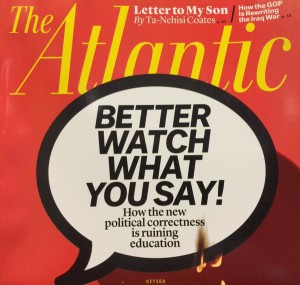

Coddling Of The American Mind: Attorney Greg Lukianoff
Coddling of the American Mind is the title of an article in the recent Atlantic Magazine by attorney Greg Lukianoff and Jonathan Haidt. It examines a particular movement arising that’s been described as “undirected” and driven largely by students that essentially scrubs campuses clean of words, ideas, and subjects that might cause discomfort or give offense. Law and Disorder hosts also take a look at the legal cases being brought by students.
Guest – Greg Lukianoff, President and CEO of FIRE, The Foundation for Individual Rights in Education. He’s the author of Unlearning Liberty: Campus Censorship and the End of American Debate and Freedom From Speech and has published articles in The Wall Street Journal, The Washington Post, The New York Times, The Los Angeles Times, TIME, The Boston Globe, Forbes, the New York Post, U.S. News & World Report, The Stanford Technology Law Review, The Chronicle of Higher Education, Reason, CNET, The Daily Caller, Congressional Quarterly, The Charleston Law Review, and numerous other publications. He is a blogger for The Huffington Post and Ricochet.com.
—-
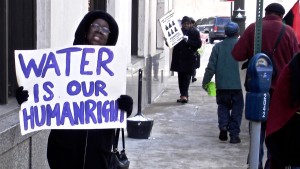

Detroit Shuts Water Off To 53 Thousand Residents In Move To Privatization
It has to be one of the country’s worst humanitarian and public health crisis. In Detroit, an estimated 53,000-plus thousand residential customers of Detroit Water and Sewer have had their water shut off without notice from the City. It is unknown precisely how many of Detroit’s children, elderly, disabled people, or other at risk persons are living without water. That’s because no state or local government has made a comprehensive count and assessment of everyone who has been affected.
High bills in the city were often the product of irresponsible behavior by landlords as well as leaky, aging water infrastructure. Water and sewage rates have increased nearly 9% in 2014 and were scheduled to increase nearly 17% in 2015. The city, recovering from enormous debt, has responded with “payment plans” and other measures to address the problem. None have worked. In July 2014 a civil lawsuit was filed pro bono on behalf of 10 families whose water was shut off. The lead plaintiff in Lyda v. City of Detroit, had her water shut off after her landlord didn’t pay the water bill. She sent her four children to live with relatives because lack of water makes a home uninhabitable under Detroit ordinances. She feared that protective services would take children away because state law gives agencies the right to remove children living in uninhabitable homes.
Guest – Attorney Alice Jennings is a founder of the firm Edwards & Jennings, P.C., specializing in civil rights and employment law, where she has been a partner since 1981. Formerly, she worked as an associate attorney and partner at the firm Philo, Atkinson, Darling, Steinberg, Harper & Edwards, P.C., specializing in workers’ compensation and personal injury. She is a current member and former chairperson of the State Bar of Michigan, serving on the Civil Liberties Committee from 1994-1995. In 2015, Alice was the honoree at the National Lawyers Guild Detroit and Michigan Chapter’s annual event.
——————————-
CIA Sponsored Terror, Civil Liberties, Criminalizing Dissent, Habeas Corpus, Human Rights, Political Prisoner, Prison Industry, Surveillance, Targeting Muslims, Torture, Truth to Power
Podcast: Play in new window | Download


Securing The Iran Nuclear Deal
Phyllis Bennis joins us today to talk about the Iran Nuclear Deal. We get her perspective on this topic in the context of a broader geopolitical front including ongoing wars, the increased US funding of Israel and challenges to Iran from Saudi Arabia.
Guest – Phyllis Bennis, directs the New Internationalism Project at IPS. She is also a fellow of the Transnational Institute in Amsterdam. She has been a writer, analyst, and activist on Middle East and UN issues for many years. In 2001 she helped found and remains on the steering committee of the U.S. Campaign to End Israeli Occupation. She works closely with the United for Peace and Justice anti-war coalition, co-chairs the UN-based International Coordinating Network on Palestine, and since 2002 has played an active role in the growing global peace movement. She continues to serve as an adviser to several top UN officials on Middle East and UN democratization issues.
—-
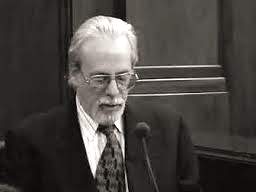
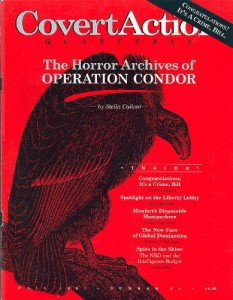
Lawyers You’ll Like: Attorney Bill Schapp
Attorney William Schaap graduated from the University of Chicago Law School in 1964 and has been a practicing lawyer since. Bill specialized in military law and practiced in Asia and Europe. He later became the editor in chief of the Military Law Reporter in Washington for a number of years. In the 70’s and 80’s he was a staff counsel of the Center for Constitutional Rights in New York City. In the late 80s, he was an adjunct professor at John J. College of Criminal Justice of the City University of New York where he taught courses on propaganda and disinformation.
Attorney William Schapp:
- One of first cases at this big Wall Street firm, they had some outside counsel working on it, one of whom was David Lubel, and Dave Lubel who had I think been a recruiter for the Communist Party in his youth, was always good at spotting somebody who was always worth recruiting and he started to tell me there was this convention of this lawyers group.
- It was this 1967 Lawyers Guild Convention in New York. He dragged me to one event, I met Bill Kunstler, I met Arthur Kinoy, I met Victor Rabbinowitz. I’d been on Wall Street for a year or two, I said I didn’t know there were lawyers like this.
- I joined the same day and met Bernadine Dorhn and a few weeks she called me and said we need your help.
- She said you gotta defend a bunch of Columbia students. The next thing I knew the riot started at Columbia and she said you have to go down there and defend them.
- I signed up to be staff counsel on the National Lawyers Guild Military Law Project in Okinawa, Japan.
- When you work overseas in that kind of a climate with the military you learn a lot fast about American imperialism.
- Once you learn that, you learn about the CIA.
- That led us to originally working on Counter Spy magazine and then on Covert Action Magazine.
- The original purpose was to expose the CIA. We worked with Lou Wolf who is an expert in uncovering CIA agents in US embassies, not through any classified documents but because if you knew how to read the paperwork and State Department things, you could tell who are the “ringers.”
- We were so successful that Congress passed a law against us.
- Our goal was to make these people ineffective because the only way most CIA could work, particularly the ones that were assigned to an embassy was to have to pretend to be something else.
- They were all third assistant political secretaries and those were all phony things. Their job was to finagle their way into various community organizations in whatever foreign capital they were posted to recruit people to turn against their own countries and become traitors to their own countries, to become spies for the U.S.
- We thought if we identified these people, it might make their job a little bit harder, which it did.
- Of course, the problem with that is the government said we were trying to get them killed which we weren’t trying to do and nobody we did expose ever did get killed.
- He (Philip Agee) had been an adviser to Counter Spy. Counter Spy folded when Welch got killed, cause the pressure was too much and started Covert Action Quarterly.
- He was not the person discovering who the under cover people were, Lou Wolf was doing that.
- Phil wrote articles for us in every issue and we worked very closely with him.
- Once you start exposing these things, they really don’t have any defense.
- They tried to catch us in something phony. We would get tips that would turn out to be CIA trying to get us to print some story that wasn’t true so they could then discredit us.
- We had more interference from the government when we were doing military law work, before Covert Action Quarterly.
- They would plant bugs in our attic in Okinawa, things like that.
- The Intelligence Identity Protection Act has 2 parts. One makes it a crime for someone in the government who has classified information to reveal someone’s identity. The second part makes it a crime to reveal the identity of someone you did not learn from classified information or you position. (But if you were in the business of exposing these people . . .)
- Regarding his newsletter The Lies of Our Times – It was in the 90s, from 1990 to 1995 I think. To a certain extent, the abuses we were crying about got a little bit less over time because that’s sometimes the helpful result of that kind of exposure.
- We were just tired of people thinking that if it was in the New York Times it must be true.
- The fact is that those people lie all the time.
- I think we’ve gotten to a point where people recognize that the government lies to them and that there’s an awful lot that goes on that they don’t know.
Guest – Attorney William Schapp graduated from the University of Chicago Law School in 1964 and has been a practicing lawyer since. Bill specialized in military law and practiced in Asia and Europe. He later became the editor in chief of the Military Law Reporter in Washington for a number of years. In the 70’s and 80’s he was a staff counsel of the Center for Constitutional Rights in New York City. In the late 80s, he was an adjunct professor at John J. College of Criminal Justice of the City University of New York where he taught courses on propaganda and disinformation.
In addition to being a practicing lawyer, Bill was a journalist, publisher and a writer specializing in intelligence as it relates to media. He was the co-publisher of a magazine called the Covert Action Quarterly for more than 20 years. He also published a magazine on propaganda and disinformation titled Lies Of Our Times. Attorney Bill Schapp has written numerous articles and edited many books on the topic of media and intelligence.
———————————————————-
CIA Sponsored Terror, Civil Liberties, Criminalizing Dissent, FBI Intrusion, Guantanamo, Habeas Corpus, Human Rights, NSA Spying, Political Prisoner, Prison Industry, Supreme Court, Surveillance, Torture, Truth to Power, War Resister
Podcast: Play in new window | Download
Update:
- Remembering Julian Bond, Social Activist, Civil Rights Leader, Politician, Professor and Author.
—-
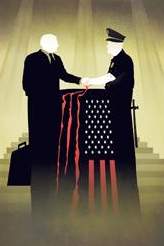
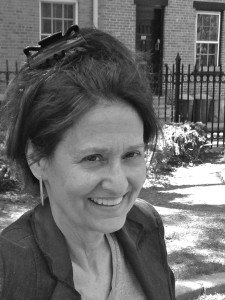
Heidi Boghosian: Prevent Police Killings Before They Happen
America has awakened in the past year to the epidemic of police killings of unarmed civilians, many of whom are African-American. The list of names grows longer by the week — Eric Garner, Michael Brown, Tamir Rice, Freddie Gray, Rekia Boyd, John Crawford and Sandra Bland to name several recently. Each time one of these criminal acts is committed, a cry goes up to prosecute the police officer responsible and bring justice to the victim. Read More.
Attorney Heidi Boghosian is the executive director of the A.J. Muste Memorial Institute, a nonprofit charitable foundation providing support to the nonviolent movement for social change. Before that she was executive director of the National Lawyers Guild. She is author of the book “Spying on Democracy: Government Surveillance, Corporate Power, and Public Resistance” (City Lights, 2013).
—-
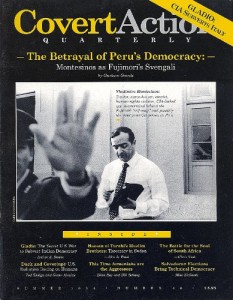
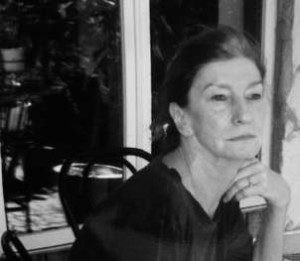
Ellen Ray: Co-Publisher of Covert Action Information Bulletin
Last week family and friends gathered at St Marks In The Bowery Church to remember documentary filmmaker, publisher, journalist and activist Ellen Ray. Ellen Ray was co-publisher of the magazine Covert Action Information Bulletin, which exposed CIA covert actions around the world, publishing the names of hundreds of CIA agents. As a result, the law changed (The Intelligence Identities Protection Act of 1982) making it illegal. As head of Sheridan Square Press, Ellen Ray published the memoir of New Orleans District Attorney Jim Garrison, which became the basis of Oliver Stone’s film, “JFK.” Ray is survived by her husband, attorney Bill Schaap, she was 75. Text of the speech by Michael Smith. Here is the video produced Joe Friendly.
—-
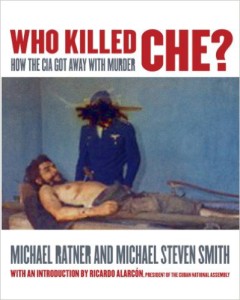
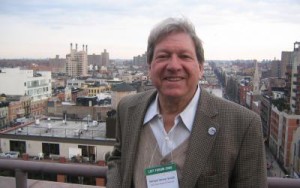
Different Ways to Skin a Cat: From the US Assassination of Che to Obama’s Recognition of Cuba
We hear a speech delivered by our own Michael Smith at Socialism Conference in Chicago titled Different Ways to Skin a Cat: From the US Assassination of Che to Obama’s Recognition of Cuba. The highpoint of U.S. counter-revolutionary policy towards Latin America came with its murder of Che Guevara, in Bolivia and the overthrow of governments including Allende’s in Chile, thus isolating Cuba throughout Latin America. Now the U.S. is isolated and the American government has had to change its tactics. The strategy of overthrowing the gains of the Cuban revolution and capitalist restoration remain.
—————————————————
CIA Sponsored Terror, Civil Liberties, Criminalizing Dissent, Human Rights, Political Prisoner, Prison Industry, Surveillance, Torture, War Resister
Podcast: Play in new window | Download
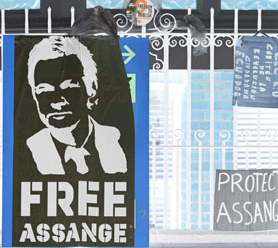
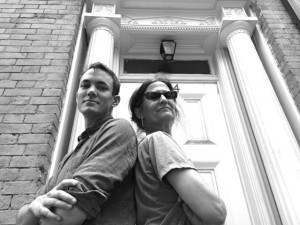
Julian Assange And Chelsea Manning Update
Attorney Carey Shenkman joins co-host Heidi Boghosian to discuss the latest developments in Julian Assange’s case. Carey also provides updates on Wikileaks whistleblower Chelsea Manning. Chelsea was accused of having contraband in her cell, that included a copy of the US Senate Torture Report, a Vanity Fair magazine and toothpaste. Manning received 21 days of recreational restrictions limiting access to the gym, library and outdoors. The maximum punishment she could have faced was indefinite solitary confinement.
Guest – Carey Shenkman is a First Amendment and human rights attorney working for Michael Ratner, President Emeritus of the Center for Constitutional Rights (CCR). Formerly at CCR, Carey worked on litigation on behalf of the press in the court-martial of whistle-blower Chelsea Manning. Carey holds two degrees in mathematics, and is an alumnus of NYU Law School, where he was an editor on the NYU Law Review. He can be reached on Twitter @CareyShenkman
—-


Structural Integrity At Question During TransCanada’s Keystone XL Permit Renewal Hearing
The structural integrity of the TransCanada Keystone XL pipeline has been called into question. Newly released evidence and testimony points to potentially serious environmental risks. During a recent permit renewal hearing in that state, evidence submitted by the grassroots citizens group Dakota Rural Action reveals faulty construction that has the potential to cause pitting and ultimately lead to environmental disasters. The newly documented evidence suggests that the risk to water sources and agricultural lands near the proposed oil export pipeline is too high. The current export pipeline stretches across the US-Canada border and runs parallel with the Mississippi River.
Guest – Attorney Robin Martinez of the Dakota Rural Action group is working to stop the permit. Documents he submitted during the legal discovery process reveal that the corrosion occurred on the existing pipeline dangerously close to the Mississippi River near St. Louis.
—-
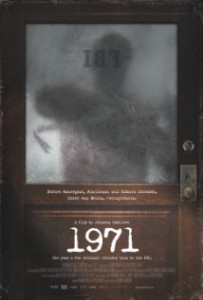
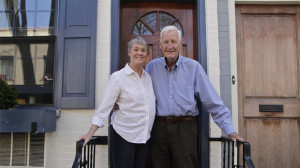
1971
On March 8th 1971, a group of anonymous individuals calling themselves the Citizen’s Commission to Investigate the FBI, broke into an FBI field office in Media, Pennsylvania. They stole thousands of government documents. Among the documents was proof that the FBI under J. Edgar Hoover, was spying on law abiding citizens. The program is known as COINTELPRO and it was used to monitor, manipulate and disrupt social and political movements in the United States. The Citizens’ Commission to Investigate the FBI has been documented recently in a highly acclaimed film titled 1971, directed by Johanna Hamilton.
Johanna Hamilton:
- I consider myself to have the good fortune to have known Betty Medsger, the author of the Burglary, for many years.
- She and I had a personal relationship that long predated our professional collaboration.
- Over time she came to share the outlines of the story with me and it sounded completely remarkable.
- She introduced me to a few members of the Citizens Commission to Investigate the FBI. The 40th anniversary was approaching.
- They wanted the story, which was so little known, to have a larger life.
- To be clear, Betty worked many years on the book. She’s done remarkable and profound research and I joined much later and was the net beneficiary of so much of her research.
- There were four years where we worked in tandem.
- When I showed the film to the Citizens Commission, while the credits rolled, Keith (Keith Forsyth – the lock picker) especially, he got up and said, good job.
- It’s a period of history I’ve been fascinated with since I was a teenager. It was the story of these extraordinary ordinary individuals who had put everything on the line and taken such great personal risk to benefit democracy.
- They trained themselves for one night of crime. They steal all the documents in the office, leak them to the press. They send them to major newspapers, and to a couple politicians. In the end, the Washington Post is the only newspaper that decides to publish the first stories.
- Those first stories reveal with out question illegal government spying on citizens who are going about their daily lives and exercising their First Amendment rights.
- Betty wrote the first stories in the Washington Post and the story fades a little from the headlines. The Pentagon Papers explode 3 or 4 months later. Daniel Ellsberg is on the scene.
- Then our story picks up again.
- It seems inconceivable now but Hoover had been director for over 50 years, and that’s no longer possible.
- Some people who seen the film before say they were really moved by the Church Committee hearings.
- Attorney David Kairys is a huge figure in Philadelphia and yes back in the day he was contacted by two members of the Citizens Commission. He didn’t know what they had done, but if they got caught, they could call him day or night.
- We were reaching the tail end, or we thought we were reaching the tail end of the film when the Snowden revelations happened.
- The Snowden revelations were one thing, absolute bombshell, but prior to that we had a couple of other instances. Back in 2011, September, there were raids all across the country, animal rights activists, environmental groups. One night Brian Williams introduced the news and described these raids and said you know its reminiscent of Hoover back in the 1970s.
- We had whole scenes cut together with that footage and debated and deliberated on that. In the end erred on the side of excluding it.
- It’s opening here in New York City and will start rolling out across the country. If you check our website we update the cities that it will show at. It will be on PBS, Independent Lens at the end of May. 1971Film.com
Guest – Johanna Hamilton, director of the film 1971. She also co-produced Pray the Devil Back to Hell, which won Best Documentary at the Tribeca Film Festival in 2008 and was shortlisted for an Academy Award. Johanna has produced nonfiction programs for PBS, The History Channel, National Geographic, A&E, Discovery Channel, and The Washington Post/Newsweek Productions, including September’s Children, a documentary for PBS exploring how children around the world are affected by terrorism and war.
—————————————–





























